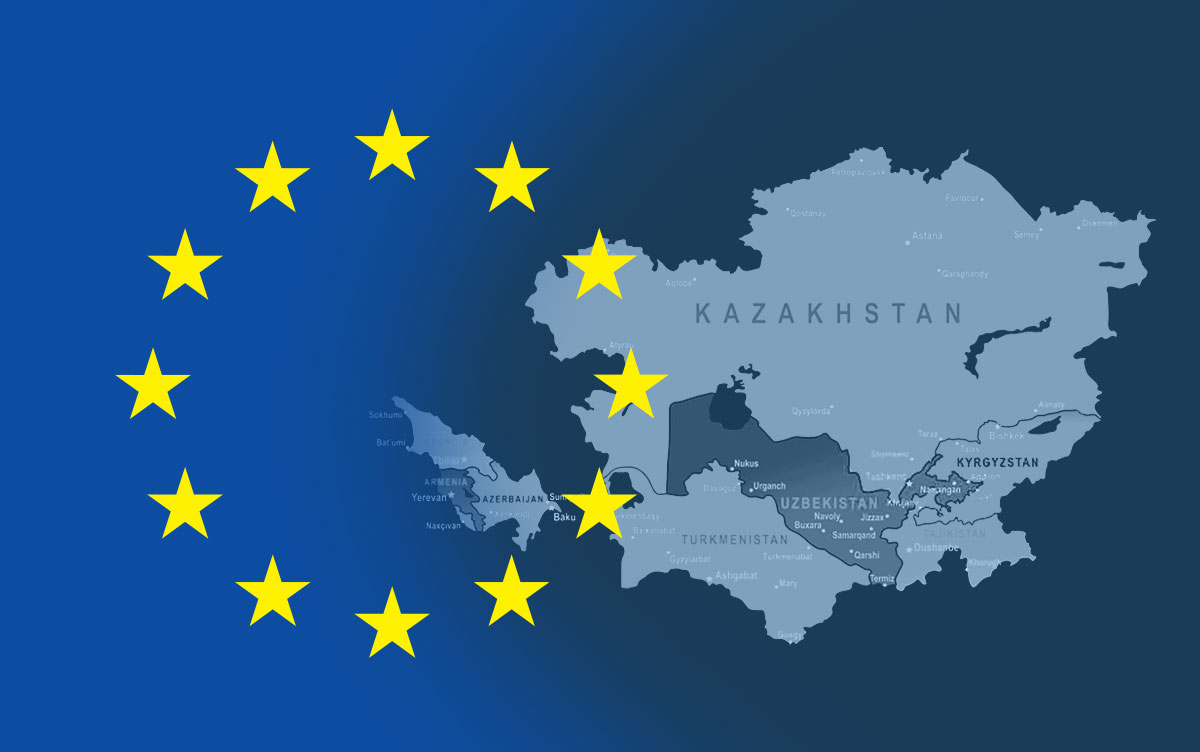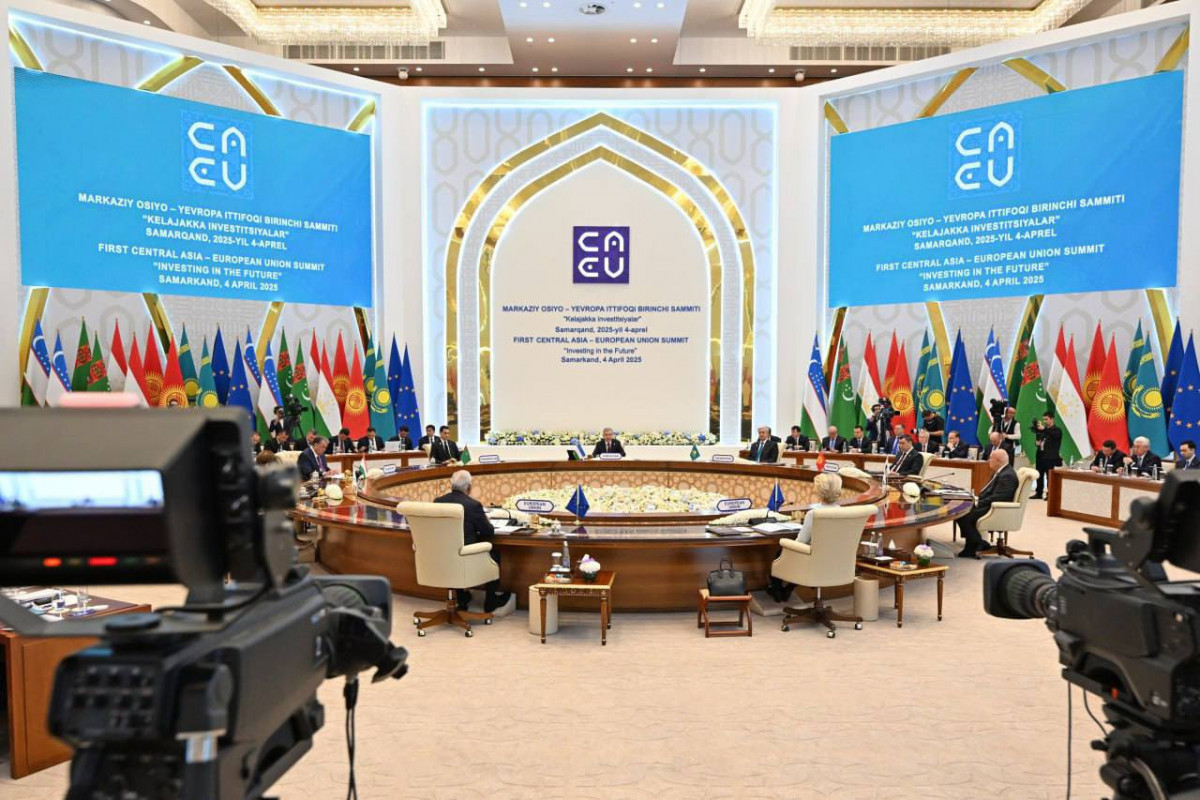South Caucasus peace paves way for deeper EU–Central Asia integration

The past week was filled with several noteworthy events, particularly for the region. One significant occasion was the international forum titled “Facing the New World Order,” which took place at ADA, where Azerbaijan conveyed important messages to the world. Additionally, the Antalya Diplomacy Forum held in Türkiye, the competitive efforts of Turkish states to recognize the Turkish Republic of Northern Cyprus. However, there was another important moment that occurred towards the end of March, which I believe has been overlooked.
A preparatory meeting of foreign ministers on March 27 has set the stage for a significant recalibration of interregional ties. The declaration adopted following the meeting presents a forward-looking agenda, one that touches nearly every strategic sector — from economic growth and energy security to humanitarian cooperation and regional stability. On April 4, a declaration on the outcomes of the European Union–Central Asia Summit held in Samarkand was adopted. The document reflects the intention to elevate cooperation between the two regions to the level of strategic partnership, both on regional and global scales. The parties also expressed satisfaction with the progress made in this direction in recent times.

The document also states that the participants of the meeting are committed to cooperation with UN member states based on the principles of peace, security, international law, respect for internationally recognized borders, democracy, adherence to the UN Charter, and respect for independence, sovereignty, and territorial integrity.
While the document itself only briefly mentions the South Caucasus — describing it as "peaceful" and essential to the region’s logistics chain — this single word may carry more weight than it seems. The fact remains: Azerbaijan has positioned itself as the central actor in EU-South Caucasus connectivity and as a bridge to Central Asia.
This emerging dynamic was underscored by President Ilham Aliyev during his remarks at the recent ADA University international forum, Facing the New World Order. He emphasized that Azerbaijan "has always played a very active role in cooperation between countries of the Turkic world," and reaffirmed the country’s deep-rooted historical, cultural, and linguistic ties with Central Asian states. “We want to see the Organization of Turkic States more consolidated and more result-oriented. For that purpose, Azerbaijan is doing its utmost,” he said.
Aliyev’s statement reflects Baku’s growing role in regional diplomacy, energy supply, and transport development — all of which are critical to the EU’s long-term ambitions in Eurasia. The declaration’s support for the Trans-Caspian Transport Corridor and a proposed investment package of up to $10 billion by the EU and its financial institutions shows Europe’s resolve to forge new eastward connections that bypass Russia. These efforts cannot succeed without stable, reliable partners — and this is where Azerbaijan’s strategic value becomes irreplaceable.
Azerbaijan has historically been a leader in this regard, as it has played a significant unifying role between Central Asia and Türkiye. The government consistently works to strengthen the Organization of Turkic States (OTS).
Despite being mentioned just once, the South Caucasus' contribution to regional trade and uninterrupted logistics is woven into every pillar of this EU–Central Asia strategy. Current reliance on Georgian infrastructure may dominate short-term planning, but in the longer term, projects like the North-South Corridor and the Middle Corridor, also known as the Trans-Caspian International Transport Route, could redefine the transport architecture of the region. Perhaps one note is also that Azerbaijan and Georgia play a pivotal role not only in these transit projects but also in Green Corridor initiatives.
Germany’s emerging leadership in Central Asia, as the only EU country hosting summits in a regional format, further reflects the bloc’s intention to deepen ties — a trend that Azerbaijan is well-positioned to support. Notably, Azerbaijan’s inclusion in the Consultative Meetings of Central Asian Leaders and Georgia’s diplomatic push across the region demonstrate the South Caucasus’ growing involvement in Eurasian processes.
Moreover, with the EU openly prioritizing critical raw materials and energy diversification — especially as it distances itself from Russian imports — Azerbaijan's existing partnerships and infrastructure offer both a strategic and secure alternative. The Southern Gas Corridor, Baku-Tbilisi-Kars railway, and Caspian Sea logistics capacity remain vital pillars for EU connectivity with Central Asia.
In short, the EU’s vision of deeper cooperation with Central Asia cannot be separated from its relationship with Azerbaijan. The subtle yet significant inclusion of the "peaceful South Caucasus" in the declaration may be a diplomatic understatement — but in geopolitical terms, it is an unmistakable nod to Baku’s pivotal role in shaping the future of intercontinental cooperation.
Here we are to serve you with news right now. It does not cost much, but worth your attention.
Choose to support open, independent, quality journalism and subscribe on a monthly basis.
By subscribing to our online newspaper, you can have full digital access to all news, analysis, and much more.
You can also follow AzerNEWS on Twitter @AzerNewsAz or Facebook @AzerNewsNewspaper
Thank you!

